Middle East
UN chief says Palestinians in Gaza in ‘death loop’, demands end to blockade | Gaza News
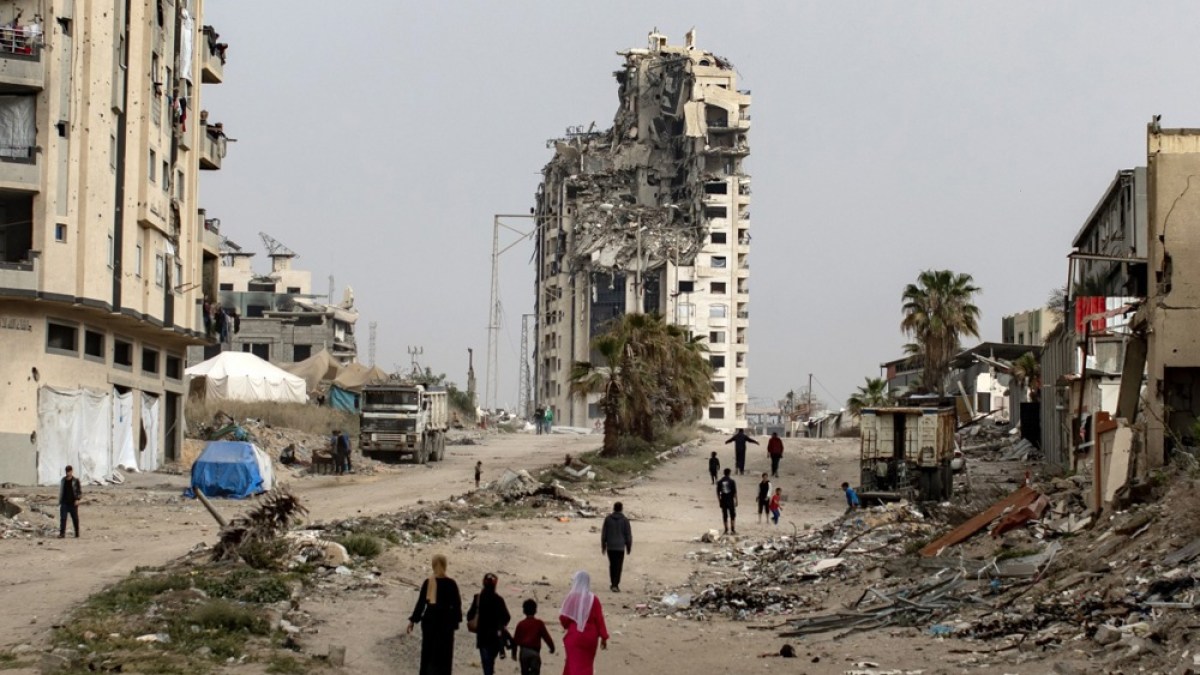
United Nations Secretary-General Antonio Guterres has spoken out about the dire humanitarian situation unfolding in the besieged Gaza Strip, saying “civilians are in an endless death loop” amid renewed Israeli bombardments and a ban on the entry of much-needed aid.
Speaking to reporters on Tuesday, Guterres rejected a new Israeli proposal to control aid deliveries in Gaza, saying it risks “further controlling and callously limiting aid down to the last calorie and grain of flour”.
“Let me be clear: We will not participate in any arrangement that does not fully respect the humanitarian principles: humanity, impartiality, independence and neutrality,” Guterres said.
No aid has been delivered to the enclave of 2.3 million people since March 2 as Israel continues to seal vital border crossings, barring the entry of everything from food to medical supplies and fuel.
“More than an entire month has passed without a drop of aid into Gaza. No food. No fuel. No medicine. No commercial supplies,” Guterres said in New York.
“As aid has dried up, the floodgates of horror have reopened. Gaza is a killing field – and civilians are in an endless death loop,” he added.
COGAT, an Israeli military unit responsible for civilian matters in occupied Palestinian territory, last week met with UN agencies and international aid groups and said it proposed “a structured monitoring and aid entry mechanism” for Gaza, after it claimed that aid was being diverted away from civilians by Hamas.
Jonathan Whittall, the senior UN aid official for Gaza and the West Bank, said last week that there was no evidence of aid being diverted.
Israel last month resumed its bombardment of Gaza, ending a fragile two-month truce. It also sent troops back into the enclave and has been trying to seize territory, including parts of Rafah in Gaza’s south.
“Meanwhile, at the crossing points, food, medicine and shelter supplies are piling up, and vital equipment is stuck,” Guterres said.
‘Unequivocal obligations’
Al Jazeera’s Gabriel Elizondo, reporting from UN headquarters in New York, said it is the first time Guterres has used such strong language in remarks about Gaza, signalling that he is getting “exasperated by how bad the situation has become there”.
“He laid out very specific ways in which Israel is violating international law.”
Guterres concluded his remarks by once again calling for a permanent ceasefire, full humanitarian access in Gaza and the release of Israeli captives held in Gaza.
“With crossing points into Gaza shut and aid blockaded, security is in shambles and our capacity to deliver has been strangled,” he said.
“As the occupying power, Israel has unequivocal obligations under international law, including international humanitarian law and international human rights law,” Guterres said.
That means Israel should facilitate relief programmes and ensure food, medical care, hygiene and public health standards in Gaza, he said. “None of that is happening today,” he added.
Meanwhile, French President Emmanuel Macron visited the Egyptian city of El Arish, a key transit point for Gaza-bound aid, to call on Israel to lift its blockade of aid deliveries.
Alongside his Egyptian host, President Abdel Fattah el-Sisi, Macron toured a hospital in the port city 50km (30 miles) west of the Gaza Strip and met with medical professionals and sick and wounded Palestinians evacuated from Gaza.
Carrying a bouquet of red roses to give to patients, the French president visited several wards as well as a play area for children.
His office said the trip was aimed at putting pressure on Israel for “the reopening of crossing points for the delivery of humanitarian goods into Gaza”.
Emergency department doctor Mahmud Mohammad Elshaer said the hospital had treated about 1,200 Palestinian patients since Israel’s assault on Gaza began in October 2023.
“Some days we can receive 100 patients, others 50,” Elshaer said, adding that many had sustained amputations or eye or brain injuries.
In Cairo, Macron, el-Sisi and Jordan’s King Abdullah II called for an “immediate return” to the ceasefire.
The three leaders met on Monday to discuss the war and humanitarian efforts to alleviate the suffering of Palestinians in Gaza, the vast majority of whom have been displaced at least once during the war.
More than 50,000 Palestinians have been killed in Israel’s genocide in Gaza. Buildings and infrastructure on large swaths of land have been destroyed, and the healthcare system has collapsed.
Middle East
Deadly, sombre Good Friday as 58 people killed in Israeli attacks on Gaza | Israel-Palestine conflict News
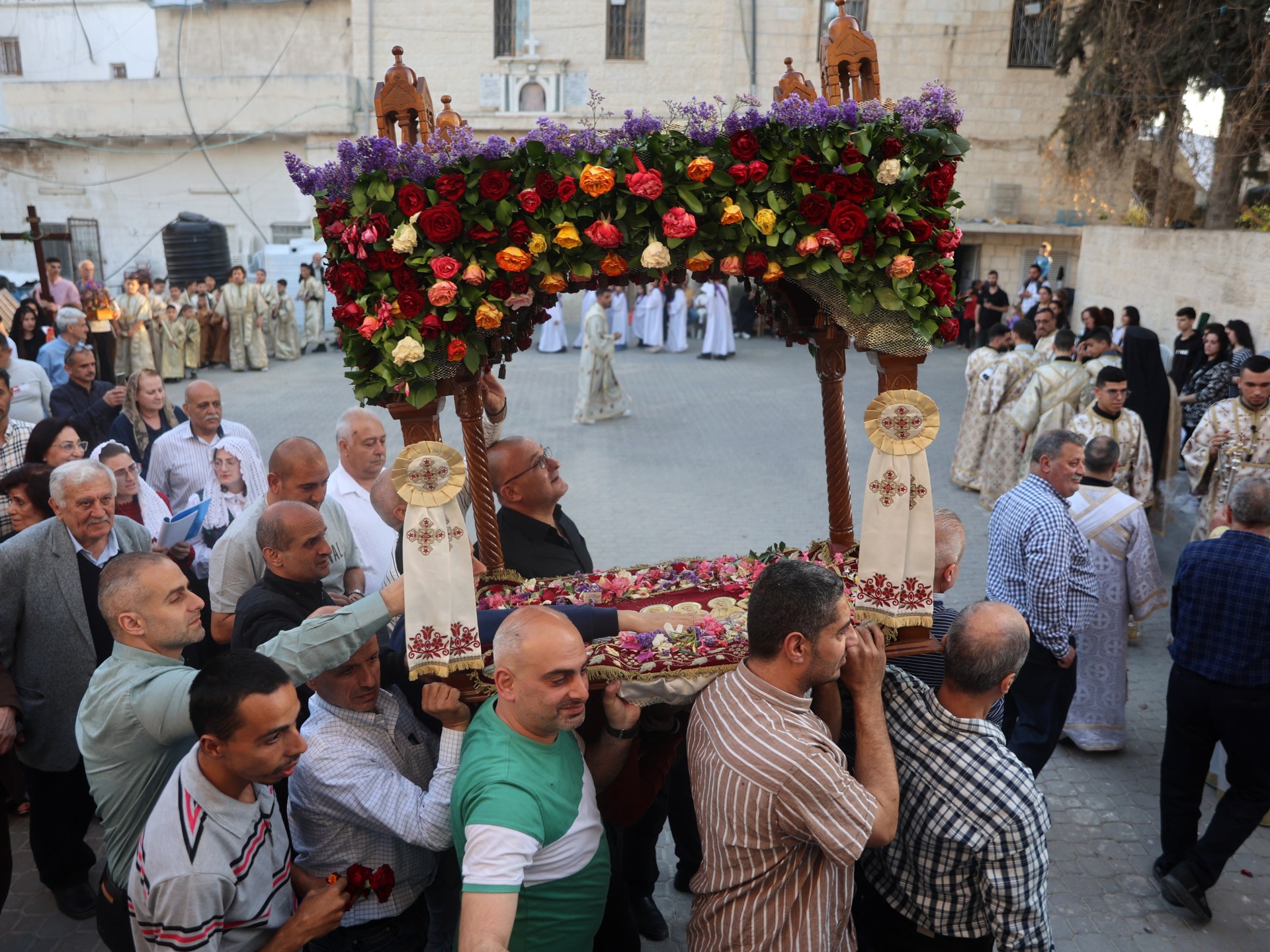
Palestinian Christians in Gaza and the occupied West Bank are holding temperate gatherings leading up to Easter.
Israeli strikes on Gaza have killed at least 58 Palestinians in one day as Christians mark Good Friday in the besieged and bombarded enclave.
More than half of the casualties were in Gaza City and northern Gaza, but deadly attacks took place across the Palestinian Strip, including in Khan Younis and Rafah in the south, medical sources told Al Jazeera on Friday.
The Israeli military said troops were operating in the Shaboura and Tal as-Sultan areas near Rafah, as well as in northern Gaza, where Israel has taken control of large areas east of Gaza City.
On Friday, Israel’s defence minister, Israel Katz, repeated that Israel intended to achieve its war aims.
“The [Israeli army] is currently working towards a decisive victory in all arenas, the release of the hostages, and the defeat of Hamas in Gaza,” he said in a statement.
Palestinian Christians in Gaza however continued to hold temperate gatherings leading up to Easter, amid the attacks.
Speaking to Al Jazeera from a local church, Ihab Ayyad said he used to gather with other congregants and visit his neighbours’ homes every year to celebrate.
“This year, we didn’t make the visits because of the total destruction everywhere, as the [Israeli] occupation forces have levelled most of the houses of my relatives and my neighbours,” Ayyad said. “A lot of my relatives and neighbours were martyred or displaced in different places. We haven’t celebrated because we feel very sad.”
Ramez al-Soury said he used to travel out of Gaza to Bethlehem or Jerusalem for the holy week.
But now, an “atmosphere of war” permeates Gaza. “The death smell is everywhere. The smell of killing and destruction is putting a lot of pressure on us,” he said.
Reporting from Gaza City, Al Jazeera’s Hani Mahmoud said the Christian community is holding onto their faith and has gathered at one of the oldest churches in the world in Gaza – not in defiance but in devotion.
“In Gaza, Good Friday is the power of faith and the quiet strength of those who still believe in peace even when the world around them is nothing but a stage filled with violence and death,” he said.
West Bank settler violence
Rituals to mark Good Friday and Easter have also been held in the occupied West Bank.
There are about 50,000 Palestinian Christians in the region. Israeli authorities, however, require them to acquire permits to travel to Jerusalem, making it difficult for many to join those celebrations.
Moreover, Israeli settlers and the military also attacked Palestinian people on their land in the town of Biddya, in the Salfit governorate in the occupied West Bank, according to Al Jazeera Arabic on Friday, tempering the celebrations.
The Palestine Red Crescent said that a Palestinian was injured in the attack.
Local sources also told Al Jazeera Arabic that dozens of settlers stormed Jabal al-Urma, a hill in the town of Beita in the Nablus governorate, under the protection of the Israeli army.
Settlers are Israeli citizens who live illegally on private Palestinian land in the occupied West Bank and East Jerusalem.
Israeli settler and military violence has soared across the West Bank – particularly in the north of the territory – since the war on Gaza began in October 2023. The United Nations has said this violence has displaced roughly 40,000 Palestinians since Israel began a new military operation in the occupied West Bank in January.
Middle East
Allies say Ghannouchi ‘unjustly’ held, as he marks 2 years in Tunisian jail | Human Rights News
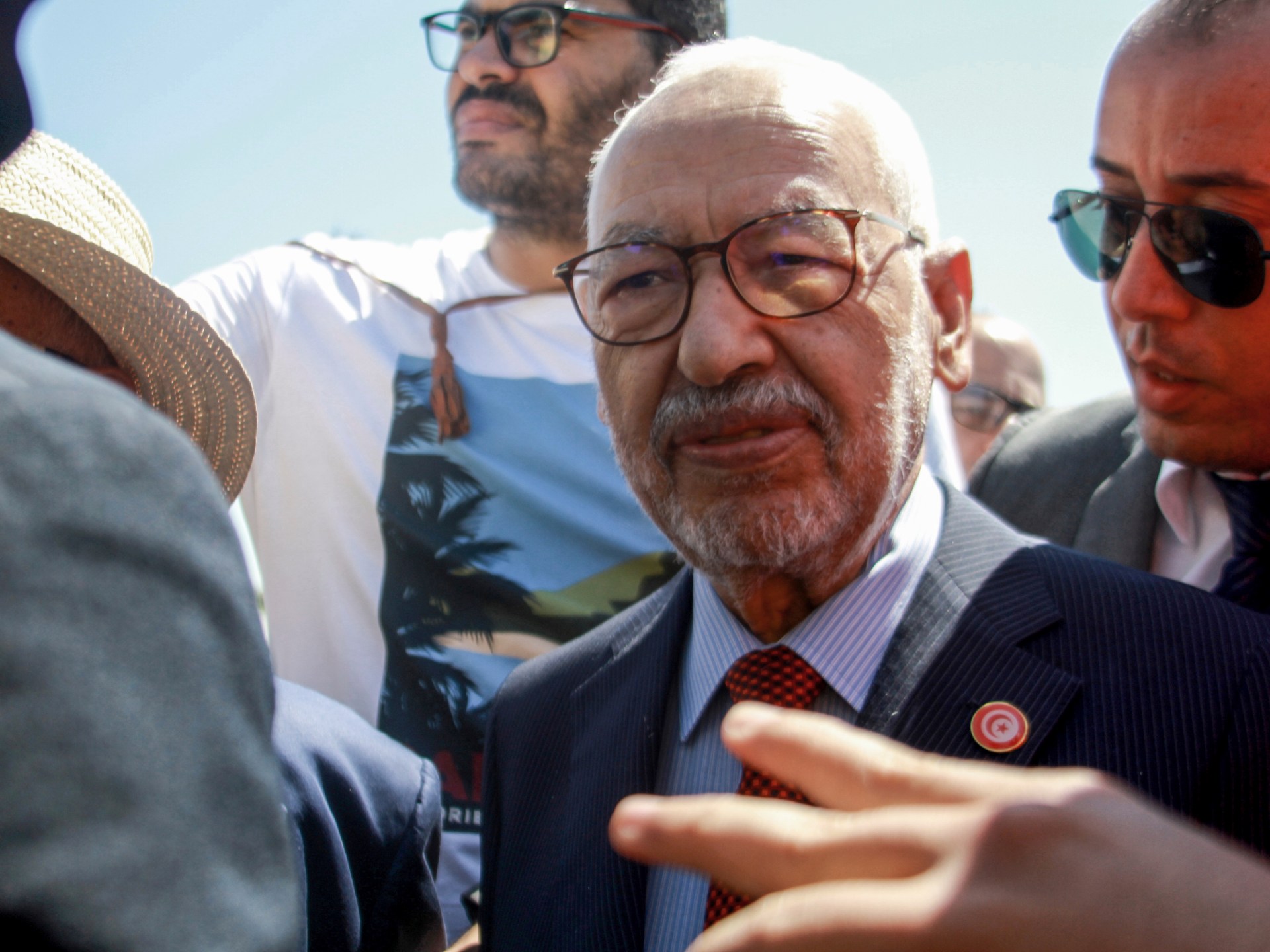
International Committee for Solidarity with Rached Ghannouchi decries ‘repressive campaign’ against Ennahdha party leader.
Marking the second anniversary of the arrest of Tunisia’s prominent opposition leader Rached Ghannouchi, an international committee formed last year to raise awareness about his imprisonment says he is being held “unjustly” and on “trumped-up charges”.
The International Committee for Solidarity with Rached Ghannouchi called for the immediate release of the imprisoned Ennahdha party leader and former speaker of Tunisia’s parliament.
In a statement on Thursday, it said that more than 15 cases have been brought against Ghannouchi, and “several unjust convictions and sentences” have been issued.
The most recent of these was a 22-year prison sentence issued in February on charges that included plotting against state security – a case “to which he has no connection”, the committee said.
Earlier this year, Ghannouchi was also sentenced to three years for accusations that his party received foreign contributions.
The 83-year-old, who has been the main rival of Tunisian President Kais Saied, was arrested in April 2023 and sentenced to one year in prison on charges of incitement.
He has been a vocal critic of Saied, and became the highest-profile figure to be arrested in the continuing consolidation of power by the president who was elected in 2019 and has overseen a wave of repression and legal reforms that have expanded his rule.
“These unjust trials and sentences take place within the context of a widespread repressive campaign led by Kais Saied’s regime, which is targeting opposition voices from all backgrounds, repressing organised action in all its forms, controlling the media and civil society, and silencing critical voices,” the committee said in its statement.
It said Saied’s government has to “exploit the judiciary as a tool for settling political scores”.
‘An era of political prisoners’
The committee’s statement comes just days after United States-based Human Rights Watch (HRW) called on the Tunisian government to halt its crackdown on opposition and free all detainees.
The rights group said arbitrary detention was being used to eliminate dissent in Tunisia amid a trial of prominent opposition figures – including Ghannouchi – on conspiracy charges.
In a report released Wednesday, HRW reinforced opposition leaders’ concern over what they call the authoritarian rule of Saied since he dissolved parliament in 2021 and began ruling by decree.
The opposition described Saied’s move as a coup. He has denied such accusations, professing he would not become a dictator but rather is trying to rescue the North African country from political chaos and rampant corruption.
The report said Tunis had turned arbitrary detention into a cornerstone of repressive policy.
“Saied’s government has returned the country to an era of political prisoners, robbing Tunisians of hard-won civil liberties,” said Bassam Khawaja, deputy Middle East and North Africa director at HRW.
Since 2023, authorities have arrested dozens of prominent political opposition figures as well as journalists, activists and lawyers in a crackdown critics say has undermined the democracy gained in the 2011 Arab Spring popular uprising.
Middle East
At least one killed by Israeli strike near Sidon in southern Lebanon | Israel attacks Lebanon News
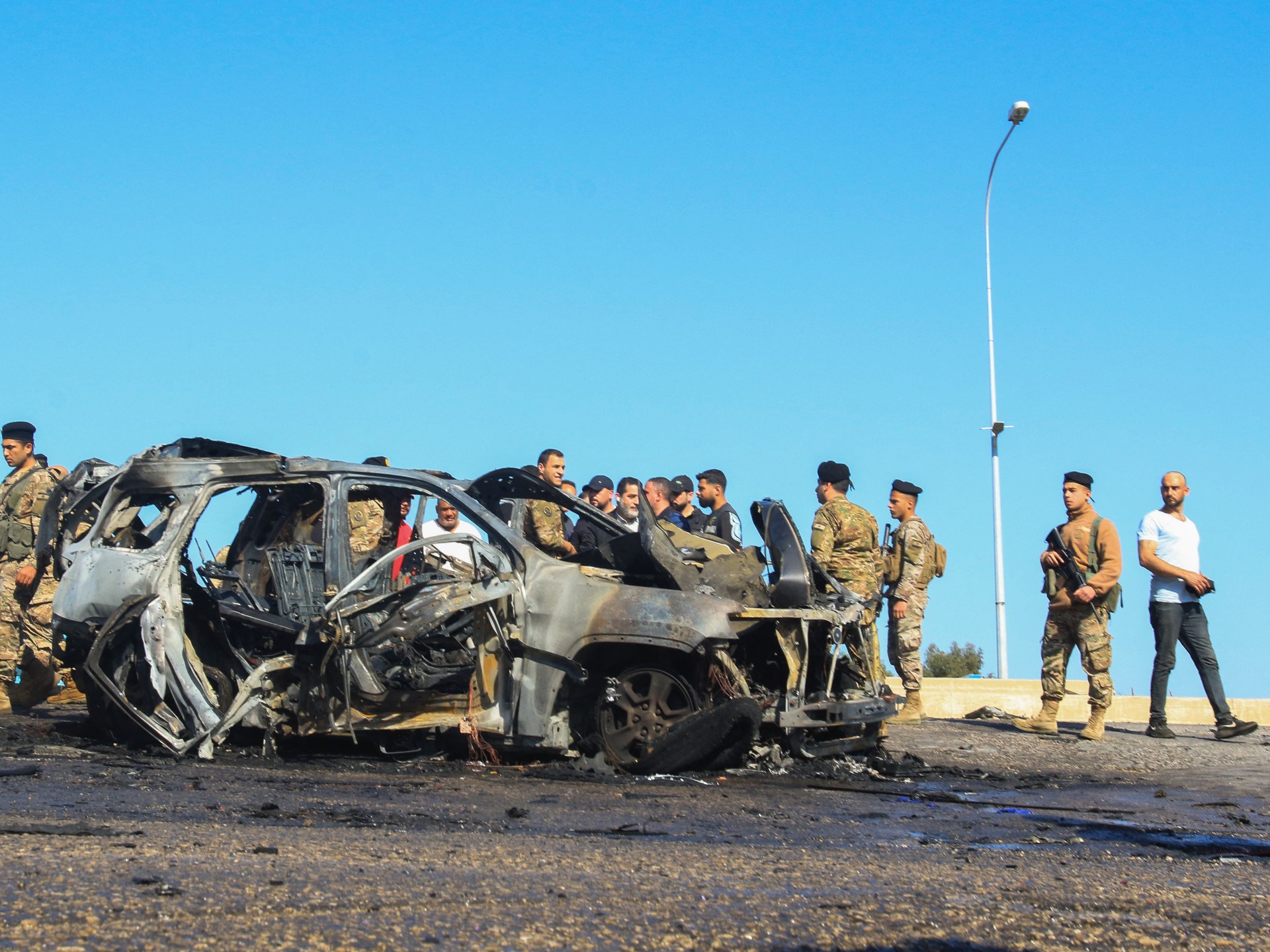
Israel has continued to conduct near-daily strikes in Lebanon despite a ceasefire with Hezbollah last November.
Lebanon’s Health Ministry has said an Israeli strike on a vehicle near the southern coastal city of Sidon killed one person, with Israel announcing that an attack in the same area had targeted a Hezbollah operative.
Despite a ceasefire last November that sought to halt more than a year of conflict between Israel and Iran-backed Hezbollah, Israel has continued to conduct near-daily strikes in Lebanon.
“The attack carried out by the Israeli enemy against a car on the Sidon-Ghaziyeh road resulted in one dead,” a Health Ministry statement said on the fourth consecutive day of Israeli attacks in the south on Friday.
An AFP journalist said the Israeli attack hit a four-wheel-drive vehicle, sending a pillar of black smoke into the sky.
At the scene of the strike, members of the security forces stood guard as a crowd gathered to look at the charred remains of the vehicle after firemen put out the blaze.
Israel’s military later said it had killed a member of Hezbollah in the area.
“Earlier today [Friday], the IAF [Israeli air force] conducted a precise strike in the area of Sidon and eliminated the Hezbollah terrorist Muhammad Jaafar Mannah Asaad Abdallah,” a military statement said.
It added that Abdallah was “responsible, among other things, for the deployment of Hezbollah’s communication systems throughout Lebanon”.
The Israeli military also said it was behind other attacks this week that it claimed had killed Hezbollah members.
Civilians killed since ceasefire
Hezbollah, significantly weakened by the war, says it is adhering to the November ceasefire, even as Israeli attacks persist.
The United Nations says at least 71 civilians have been killed by Israeli forces in Lebanon since the ceasefire.
Thameen al-Kheetan, spokesperson for the UN Office for the High Commissioner for Human Rights (OHCHR), said on Tuesday that the death toll included 14 women and nine children. He called for investigations into “each and every military action where civilians are killed”.
Under the November ceasefire, Israel was to withdraw all of its forces from south Lebanon and Hezbollah was to pull its fighters back north of Lebanon’s Litani River and dismantle any remaining military infrastructure in the south. But despite the deal, Israeli troops have remained at five south Lebanon positions that they deem “strategic”.
Lebanon’s army has been deploying in the south near the border in regions where Israeli forces pulled back. Lebanese President Joseph Aoun told Al Jazeera on Monday that the army was “dismantling tunnels and warehouses and confiscating weapons bases” south of the Litani “without any problem from Hezbollah”.
On Thursday, a senior Hezbollah official told the Reuters news agency the group is ready to hold talks with the Lebanese president about its weapons if Israel withdraws from southern Lebanon and stops its strikes.
Separately, a Hezbollah official said on Friday that the group categorically refused to discuss handing over its weapons to Lebanon’s army unless Israel withdrew completely from the south and stopped its “aggression”.
“Wouldn’t it be logical for Israel to first withdraw, then release the prisoners, then cease its aggression … and then we discuss a defensive strategy?” Wafiq Safa said in an interview with Hezbollah’s Al Nur radio station.
“The defensive strategy is about thinking about how to protect Lebanon, not preparing for the party to hand over its weapons.”
-

 Conflict Zones2 days ago
Conflict Zones2 days agoHaiti in ‘free fall’ as violence escalates, rights group warns | Armed Groups News
-
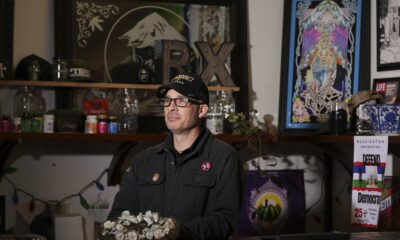
 Lifestyle2 days ago
Lifestyle2 days agoBelievers say microdosing psychedelics helps them. Scientists are trying to measure the claims
-
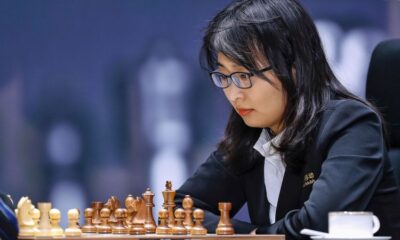
 Sports2 days ago
Sports2 days agoJu Wenjun: Chinese grandmaster makes history by winning fifth Women’s World Chess Championship
-
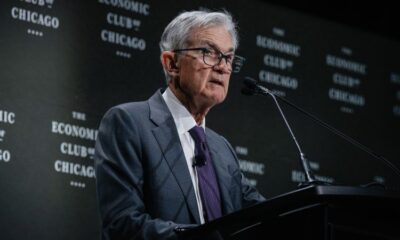
 Europe2 days ago
Europe2 days agoTrump blasts Fed Chair Powell, saying his ‘termination cannot come fast enough’
-
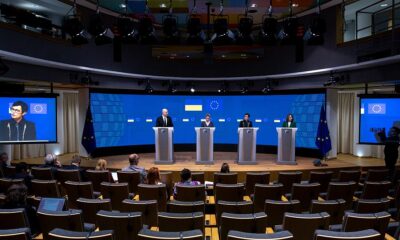
 Africa2 days ago
Africa2 days agoEuropean Union announces new asylum measures
-

 Sports2 days ago
Sports2 days agoArsenal reaches first Champions League semifinal in 16 years, with Inter Milan also advancing
-
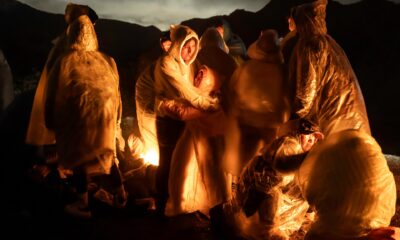
 Middle East2 days ago
Middle East2 days agoPalestinian photographer Samar Abu Elouf wins world’s top photo prize | Gaza News
-

 Lifestyle2 days ago
Lifestyle2 days agoPicking a team from bars to beam and hoping for 10s: Fantasy leagues in gymnastics are a thing




